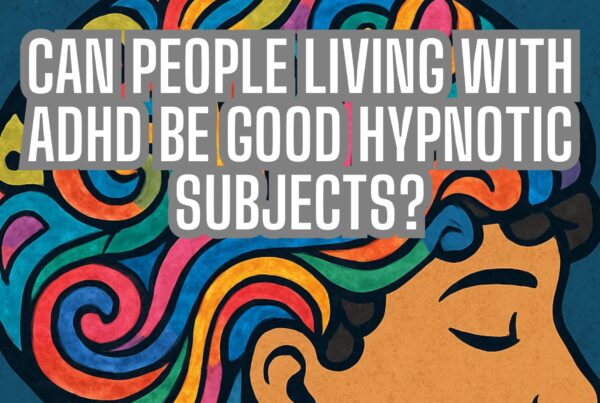Unraveling the Science Behind the Enigma of Hypnosis
Exploring Hypnosis Science
Hypnosis has long been shrouded in mystery, with many questioning its legitimacy. Some view it as mere trickery, while others believe it borders on the supernatural, turning individuals into mindless automatons. However, recent research studies suggest that hypnosis might be a natural facet of human behavior. In this blog, we explore some of the hypnosis science that this research has uncovered.
Understanding the Basics of Hypnosis
When we talk about hypnosis, we refer to a series of procedures that start with an induction. This induction can be as simple as focusing on an object, relaxing, or actively visualizing a scenario. Following this, one or more suggestions are given, like “Your left arm will feel numb.” The primary aim of the induction is to create a mental state where individuals concentrate on the instructions given by the therapist or experimenter, pushing aside everyday distractions. What makes hypnosis intriguing to researchers is that individuals often feel their reactions are automatic or beyond their conscious control.
Interestingly, the type of induction used doesn’t have a significant impact on the outcome. The success of hypnosis isn’t dependent on the hypnotist’s unique abilities either, though a good rapport with the hypnotist can be beneficial in therapy.
The Role of Hypnotic Suggestibility
The primary factor determining the success of hypnosis is an individual’s “hypnotic suggestibility.” It’s a measure of how receptive someone is to suggestions. Research has shown that this suggestibility is consistent over time and can even be inherited. Some studies have even identified specific gene variants in highly suggestible individuals.
The majority of people have a moderate response to hypnosis, experiencing noticeable changes in behavior and perception when given hypnotic suggestions. However, a small fraction of the population (around 10-15%) doesn’t respond to hypnosis. On the other hand, another 10-15% are highly responsive, and it’s this group that has been the primary focus of hypnosis research.
For these highly suggestible individuals, suggestions can be powerful enough to block pain, induce hallucinations, or even cause amnesia. Brain imaging studies have shown that these individuals aren’t merely pretending or imagining these effects. Their brain activity differs when they’re responding to hypnotic suggestions compared to when they’re merely imagining or voluntarily producing similar responses.
Delving Deeper into the Highly Suggestible Brain
Preliminary studies indicate that highly suggestible individuals might have distinct functioning and connectivity in their prefrontal cortex, a crucial brain region responsible for various psychological functions, including planning and self-awareness. Some evidence also suggests that these individuals might perform worse on cognitive tasks that rely on the prefrontal cortex, like working memory. However, these findings are nuanced by the possibility of different subtypes within this group of highly suggestible individuals. These differences in brain function might provide insights into why they’re so responsive to suggestions. They might be more receptive because they’re less conscious of the intentions driving their reactions.
For instance, when told they won’t feel pain, they might suppress the pain without realizing they intended to do so. This lack of awareness might also explain why their experiences often feel out of their control. While more research is needed, it’s believed that hypnosis involves changes in brain regions linked to self-awareness and monitoring of mental states.
Comparing Hypnosis to the Placebo Effect
Even though hypnosis can produce astonishing effects, it’s now recognized that our beliefs and expectations can profoundly influence our perceptions. This is similar to the placebo effect, where a non-effective treatment or drug can have beneficial effects simply because we believe it will work. In this context, the extraordinary responses to hypnosis might just be powerful examples of how our beliefs and expectations can mold our perceptions and behaviors.
Hypnosis in the Medical Field
Meta-analyses, which combine data from multiple studies on a topic, have shown that hypnosis can be effective in treating conditions like irritable bowel syndrome and chronic pain. However, for other conditions like smoking, anxiety, or post-traumatic stress disorder, the evidence isn’t as robust, mainly due to a lack of reliable research.
While hypnosis can be beneficial for certain conditions, it’s not a cure-all. Those considering hypnotherapy should consult with a trained professional. It’s essential to note that in some places, like the UK, anyone can legally claim to be a hypnotherapist and treat clients. Therefore, it’s crucial to ensure that a hypnotherapist has proper training in a relevant field, such as clinical psychology or medicine.
Hypnosis Science
As our understanding of hypnosis deepens, it’s becoming evident that this fascinating phenomenon can offer unique insights into the workings of the human mind. It sheds light on fundamental aspects of human nature, such as the influence of our beliefs on our perception of the world and our sense of control over our actions.
Release Hypnosis Melbourne Hypnotherapy
Since 2015, Lawrence Akers has been working under the name Release Hypnosis offering Hypnotherapy and ACT based work to the people of Melbourne or an online service. Based on St Kilda Rd, Release Hypnosis is an easy and convenient location to get to and accessible by the ANZAC station train and tram stop. Release Hypnosis can help with a wide range of presenting issues, and I offer a free 30 minute no obligation discovery call for those who are unsure if hypnotherapy is the right way forward for them.
Book Your FREE Half Hour Consultation With Release Hypnosis NOW!
You may also like to read:
Book Review: The Five Second Rule
Book Review: The Consolations of Philosophy
Book Review: Healing The Shame That Binds You
Book Review: The Happiness Trap








